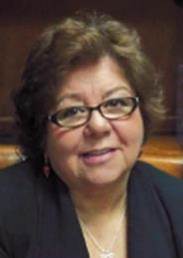
Recently Governor Gavin Newsom introduced California’s 2020-2021 proposed budget and a central issue is the inclusion of Medicare for All in California with more that $80 million in Medi-Cal funding allocated to expand the program to an estimated 27,000 undocumented seniors starting 2021. There is a growing consensus that a one-size-fits-all health insurance system would threaten American’s access to affordable, quality health care. As the debate over the future of health care continues, the question now is: What does this mean for our seniors and what can we do to ensure no one loses their benefits?
FTI Consulting and the Partnership for America’s Health Care Future released a report this month, Medicare for All and the Future of America’s Health Care Workforce, which determined that governmental health insurance systems known as Medicare for All, “could have a significant negative impact on the adequacy of the country’s health care workforce, access to care, and, ultimately, patient outcomes.” (https://americashealthcarefuture.org/wp-content/uploads/2020/01/FTI-Medicare-for-All-and-the-Future-of-Americas-Workforce.pdf)
More than 1.2 million healthcare jobs are at risk under Medicare for All, according to this FTI Consulting report. They found that Medicare for All could have a devastating effect on American healthcare workforce, which could reduce the number of physicians by 44,693 by 2050 relative to current projections. The study found that primary care physicians could be particularly affected, as Medicare for All could reduce the number of those healthcare workers by 10,286 within the next 30 years. Medicare for All would also reportedly decrease the number of U.S. physicians by 5.4 percent, which would particularly impact rural communities.
FTI Consulting and the Partnership predict that the nursing workforce will reach shortage levels by 2030 and may reduce the number of nurses and other workers by 1.2 million by 2050. Additionally, Medicare for All’s reduced Medicare reimbursement rates would also result in 90 percent of hospitals running consistent deficits, which would put hospitals at risk.
The impact of Medicare for All on America’s health care workforce would undermine the policy’s central objective: expanding access to care. With many areas of the country already on the brink of a crisis when it comes to provider shortages, policymakers must consider the impact of Medicare for All and related policies on the ability of these communities to attract and retain the next generation of health professionals.
Lauren Crawford Shaver, the Partnership’s Executive Director, said in a statement on January 14: “This new issue brief adds to the mounting evidence that Medicare for All would threaten Americans’ access to quality health care. Instead of forcing Americans into a one-size-fits-all government health insurance system controlled by politicians, our elected officials should instead focus on building on what’s working and fixing what isn’t.”
Lastly, the report concluded, “The effects of reduced reimbursements under Medicare for All would directly impact not only health care workers and their patients, but the health of communities across the country as they contend with delayed access to care, decreased quality and widening health disparities.” This is the kind of information that we, the agents, need to know in order to protect our seniors as well as all citizens who will be affected by this way of thinking.
So, what does this mean to the Medicare agent? We must work together and become proactive. We can start by becoming certified in Single Payer in order to be better equipped to relate to our senior clients the pro’s and con’s that may happen with their benefits. Staying informed and up to date with the current legislative issues that impact all of us in California and across the country is another way to be proactive.
Writing to our legislators and voicing your opinions about Single-Payer and Medicare-For-All is a powerful way for government to hear us. Did you know that NAHU’s Operation Shout (https://nahu.quorum.us/action_center/) and CAHU’s VoterVoice (https://www.cahu.org/votervoice) make it easy to send a message to your member of Congress about important health care issues that we are facing today? These online resources are a simple and effective way of communicating and advocating to our government officials for our clients.
Let’s help government hear us, actively participate to affect change and be ready for what is next in the ongoing challenge to make a difference on behalf of health care consumers.

Yolanda Webb is the California Association of Health Underwriters Corporate Affairs Director.
*Sean Moran, a congressional reporter, also contributed to this article.
